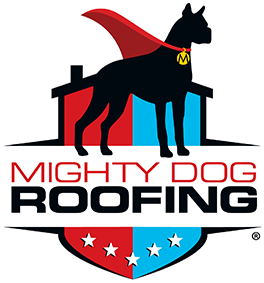Hiring a roofing contractor is a major decision that affects the longevity, durability, and safety of your home. Whether you need a simple repair or a full roof replacement, selecting the right professional is crucial. A trustworthy, experienced, and licensed roofing contractor ensures that the job is done properly, preventing future issues like leaks, structural damage, or costly repairs.
In this blog, we’ll discuss the top questions to ask a Connecticut roofing contractor, how to spot a roofing scam, and what to look for in roofing estimates and contracts.
5 Questions to Ask Before Hiring a Roofing Contractor
Before signing a contract, it’s important to vet your roofing contractor thoroughly. Asking the right questions can help you determine if they are qualified, experienced, and trustworthy.
1. Are You Licensed and Insured?
A reputable roofing contractor in Connecticut should be fully licensed and insured. This protects you from liability in case of accidents, injuries, or property damage during the project.
✔ Ask for their Connecticut contractor license number and verify it through the state’s licensing board.
✔ Ensure they have general liability insurance and workers’ compensation insurance to cover employees.
2. Do You Have Experience with My Type of Roof?
Not all roofing contractors specialize in every type of roofing material. Whether you have asphalt shingles, metal roofing, slate, or flat roofing, you want a contractor with direct experience installing and repairing that specific material.
✔ Ask for examples of previous work on homes similar to yours.
✔ Request references from past customers who had similar roofing projects.
3. What Warranties Do You Offer?
A quality roofing contractor should offer both manufacturer warranties on materials and workmanship warranties on labor.
✔ A manufacturer warranty covers defects in roofing materials (usually 20-50 years).
✔ A workmanship warranty ensures the installation is free of errors (typically 5-10 years).
4. Will You Provide a Detailed Written Estimate?
A professional contractor should never give verbal quotes. Always ask for a written, itemized estimate that includes:
✔ Cost of materials
✔ Labor charges
✔ Timeline for completion
✔ Warranty information
✔ Permit and disposal fees
This ensures transparency and helps you compare estimates between different contractors.
5. How Will You Handle Unexpected Issues?
Roofing projects sometimes uncover hidden problems, such as rotting wood, mold, or ventilation issues. A good contractor should have a plan in place for dealing with these issues without drastically increasing costs.
✔ Ask how they communicate additional costs and whether they will consult you before making changes to the project.
How to Spot a Roofing Scam
Unfortunately, scam contractors prey on homeowners, especially after storms or natural disasters. Protect yourself by watching out for these red flags:
1. High-Pressure Sales Tactics
🚩 Scammers often use pressure tactics, claiming you must sign a contract immediately or risk losing a special deal. A reputable contractor will give you time to make an informed decision.
2. No License or Insurance Proof
🚩 If a contractor refuses to show proof of licensing or insurance, walk away. Unlicensed roofers cut corners and may disappear if something goes wrong.
3. Upfront Payment Demands
🚩 Be wary of contractors who demand full payment upfront. Legitimate contractors may request a deposit (usually 10-30%), but the majority of the payment should be made after work is completed.
4. Unmarked Vehicles or No Physical Business Address
🚩 Reputable roofers have company-branded vehicles, a business address, and a website. Scammers may operate out of unmarked vans with no official contact details.
5. Lack of a Written Contract
🚩 If a roofer refuses to put the agreement in writing, don’t hire them. A contract protects both parties and should outline the scope of work, costs, timeline, and warranty terms.
Understanding Roofing Estimates and Contracts
Before committing to a roofing contractor, you need to carefully review the estimate and contract to avoid hidden fees and misunderstandings.
What a Roofing Estimate Should Include:
✔ Material Costs – The type of shingles, underlayment, flashing, and other materials used.
✔ Labor Charges – Installation costs and any additional labor fees.
✔ Timeline – Estimated start and completion dates.
✔ Warranty Details – What is covered and for how long.
✔ Permits & Disposal – Fees for removing old roofing materials and obtaining necessary permits.
Key Elements of a Roofing Contract:
✔ Scope of Work – A detailed description of what will be done (e.g., roof replacement, repair, flashing installation).
✔ Payment Terms – Deposit amount, installment schedule, and final payment terms.
✔ Cleanup & Debris Removal – Confirmation that the contractor will clean up after completing the work.
✔ Warranty Information – What is covered under manufacturer and workmanship warranties.
✔ Change Order Policy – A clear outline of how unexpected costs or additional work requests will be handled.
What to Avoid in a Roofing Contract:
🚩 Vague or unclear wording – Everything should be explicitly stated.
🚩 No warranty information – A lack of warranty coverage is a red flag.
🚩 Blank spaces in the contract – These could be altered after you sign.
Final Thoughts: Hiring the Right Connecticut Roofing Contractor
When hiring a roofer, doing your homework can save you from costly mistakes. Asking the right questions, reviewing contracts carefully, and avoiding common scams will help you choose a trustworthy and skilled professional.
Key Takeaways:
✔ Always ask for proof of licensing and insurance.
✔ Get a detailed, written estimate before agreeing to any work.
✔ Choose a roofer with experience in your specific roofing material.
✔ Be wary of pressure tactics, upfront payment demands, and vague contracts.
✔ Read through the entire contract, including warranties and hidden fees.


